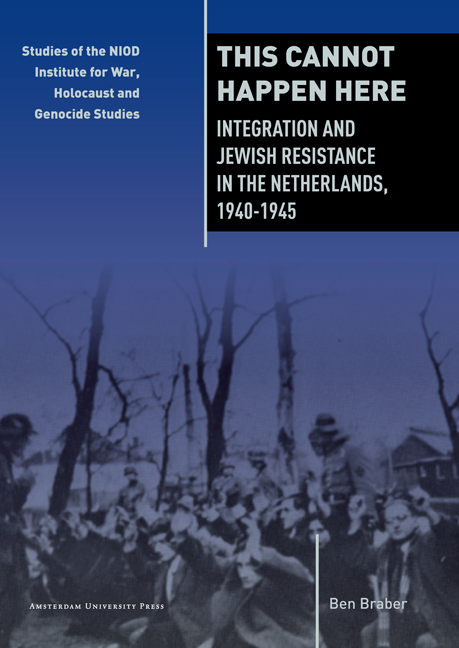7 - Desperation (July 1942 – May 1945)
Published online by Cambridge University Press: 15 January 2021
Summary
In 1943 Rudolf Bloemgarten, awaiting execution in prison, wrote in a farewell note to a friend:
Today we had to compile our final menu, but my cellmates and I do not wish a deviation from the daily ration. You have no idea how united we are in everything and go to our execution full of confidence. We did what we had to do and are completely reconciled with death […] God is calling – we are waiting impatiently.
Bloemgarten was one of the Jews in the Netherlands who took part in armed resistance against the Germans. The nature of their work took shape in the course of 1942 and 1943, coinciding with the deportation of Jews from the Netherlands.
By September 1943 the Germans regarded Amsterdam as a city from where all Jews had been cleansed – judenrein. The deportations from transit camps in the Netherlands continued until by September 1944 there were only a few hundred inmates incarcerated there. Nevertheless, thousands of Jews had managed to escape deportation by going into hiding. They received help from large general Dutch resistance organisations that were now arising with support from the Dutch population, which was growing more hostile towards the occupiers following German measures such as the execution of hostages, rationing of essential goods, requisition and seizure of products and the means of production to be sent to Germany, forced labour decrees for men and German police raids to find the men who refused to report for forced labour. The war had also passed a turning point, marked by the German defeats at Stalingrad, El Alamein and the allied landings in North Africa at the end of 1942. However, for the majority of the Jews the growth of the Dutch resistance movement came too late – they had been or were about to be deported and perished in slave labour and death camps. Many of the remaining Jews in hiding participated in the activity of general resistance groups. This was often an outcome of their integration into the Dutch society, but their positions in these organisations changed during and after the deportations as they disappeared from leading roles. The nature of their work changed too.
- Type
- Chapter
- Information
- This Cannot Happen HereIntegration and Jewish Resistance in the Netherlands, 1940–1945, pp. 141 - 154Publisher: Amsterdam University PressPrint publication year: 2013



